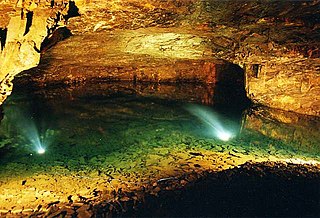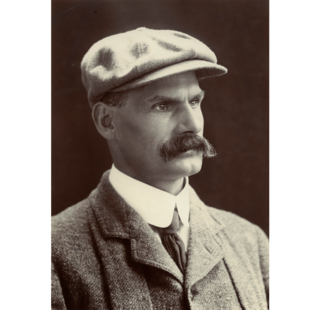Related Research Articles

Cornwall is a historic county and ceremonial county in South West England. It is recognised as one of the Celtic nations, and is the homeland of the Cornish people. Cornwall is bordered to the north and west by the Atlantic Ocean, to the south by the English Channel, and to the east by the county of Devon, with the River Tamar forming the border between them. Cornwall forms the westernmost part of the South West Peninsula of the island of Great Britain. The southwesternmost point is Land's End and the southernmost Lizard Point. Cornwall has a population of 568,210 and an area of 3,563 km2 (1,376 sq mi). The county has been administered since 2009 by the unitary authority, Cornwall Council. The ceremonial county of Cornwall also includes the Isles of Scilly, which are administered separately. The administrative centre of Cornwall is Truro, its only city.

Devon is a county in South West England, reaching from the Bristol Channel in the north to the English Channel in the south. It is bounded by Cornwall to the west, Somerset to the north-east and Dorset to the east. The city of Exeter is the county town. The county includes the districts of East Devon, Mid Devon, North Devon, South Hams, Teignbridge, Torridge and West Devon. Plymouth and Torbay are each geographically part of Devon, but are administered as unitary authorities. Combined as a ceremonial county, Devon's area is 6,707 km2 and its population is about 1.2 million.

The Who are a British rock band formed in London in 1964. Their classic lineup consisted of lead singer Roger Daltrey, guitarist and singer Pete Townshend, bass guitarist and singer John Entwistle, and drummer Keith Moon. They are considered one of the most influential rock bands of the 20th century, and have sold over 100 million records worldwide. Their contributions to rock music include the development of the Marshall Stack, large PA systems, the use of the synthesizer, Entwistle and Moon's influential playing styles, Townshend's feedback and power chord guitar technique, and the development of the rock opera. They are cited as an influence by many hard rock, punk rock and mod bands, and their songs are still regularly played.

Newquay is a town on the north coast in Cornwall, in the south west of England. It is a civil parish, seaside resort, regional centre for aerospace industries, future spaceport and a fishing port on the North Atlantic coast of Cornwall, approximately 12 miles (19 km) north of Truro and 20 miles (32 km) west of Bodmin.

Tommy is the fourth studio album by the English rock band the Who, a double album first released on 17 May 1969. The album was mostly composed by guitarist Pete Townshend, and is a rock opera that tells the story of Tommy Walker, a "deaf, dumb and blind" boy, including his experiences with life and his relationship with his family.

Thomas Geoffrey Wilkinson is an English actor.

Wadebridge is a town and civil parish in north Cornwall, England, United Kingdom. The town straddles the River Camel five miles upstream from Padstow. The permanent population was 6,222 in the census of 2001, increasing to 7,900 in the 2011 census. There are two electoral wards in the town. Their total population is 8,272.

Carnglaze Caverns consists of three man-made caverns formed as part of a slate quarry in the Loveny Valley, near the village of St Neot, Liskeard, Cornwall, England, UK.

Whitesand Bay is a wide sandy bay near Land's End in west Cornwall, England, United Kingdom. It stretches for one mile between the headlands of Pedn-mên-du and Aire Point. and contains the village of Sennen Cove. It is also a landing point for the Atlantic Crossing 1 international telecommunications cable.
Alan Stokes is a British professional surfer and surf model from Newquay, Cornwall. He won the 2009 UK Pro Surf Tour Championships.
Robert Victor Walling (1895–1976) was a Cornish soldier, journalist, and poet.

The National Maritime Museum, Cornwall is located in a harbourside building at Falmouth in Cornwall, England. The building was designed by architect M. J. Long, following an architectural design competition managed by RIBA Competitions.

The Duke of Cornwall's Light Infantry (DCLI) was a light infantry regiment of the British Army in existence from 1881 to 1959.

Beunans Meriasek is a Cornish play completed in 1504. Its subject is the legends of the life of Saint Meriasek or Meriadoc, patron saint of Camborne, whose veneration was popular in Cornwall, Brittany, and elsewhere. It was written in the Cornish language, probably written around the same time and in the same place as Bewnans Ke, the only other extant Cornish play taking a saint's life as its subject.

Joseph Hocking was a Cornish novelist and United Methodist Free Church minister.
Alan M. Kent is a Cornish poet, dramatist, novelist, editor, academic and teacher. He is the author of a number of works on Cornish and Anglo-Cornish literature.

Pecatu is a region in the west of the Bukit Peninsula of Bali. Its hilly landscape creates smaller, more isolated beaches than at Nusa Dua on the eastern side of the peninsula. It is popular with surfers and also with nudists.

England Counties XV is a representative rugby union team, formed in 2002, open to English players who play in the County Championship and the third tier of the English rugby union system. Players from the Premiership and RFU Championship are ineligible.
The Cornish dialect is a dialect of English spoken in Cornwall by Cornish people. Dialectal English spoken in Cornwall is to some extent influenced by Cornish grammar, and often includes words derived from the Cornish language. The Cornish language is a Celtic language of the Brythonic branch, as are the Welsh and Breton languages. In addition to the distinctive words and grammar, there are a variety of accents found within Cornwall from the north coast to that of the south coast and from east to west Cornwall. Typically, the accent is more divergent from Standard British English the further west through Cornwall one travels. The speech of the various parishes being to some extent different from the others was described by John T. Tregellas and Thomas Quiller Couch towards the end of the 19th century. Tregellas wrote of the differences as he understood them and Couch suggested the parliamentary constituency boundary between the East and West constituencies, from Crantock to Veryan, as roughly the border between eastern and western dialects. To this day, the towns of Bodmin and Lostwithiel as well as Bodmin Moor are considered the boundary.
References
- ↑ "Surfing Tommies". Archived from the original on 2013-05-05.
- ↑ BBC. "Surfing Tommies".
- ↑ Kent, Alan M (19 May 2011). "Why theatre needs a Cornu-copia of regional dialects". The Guardian. London.